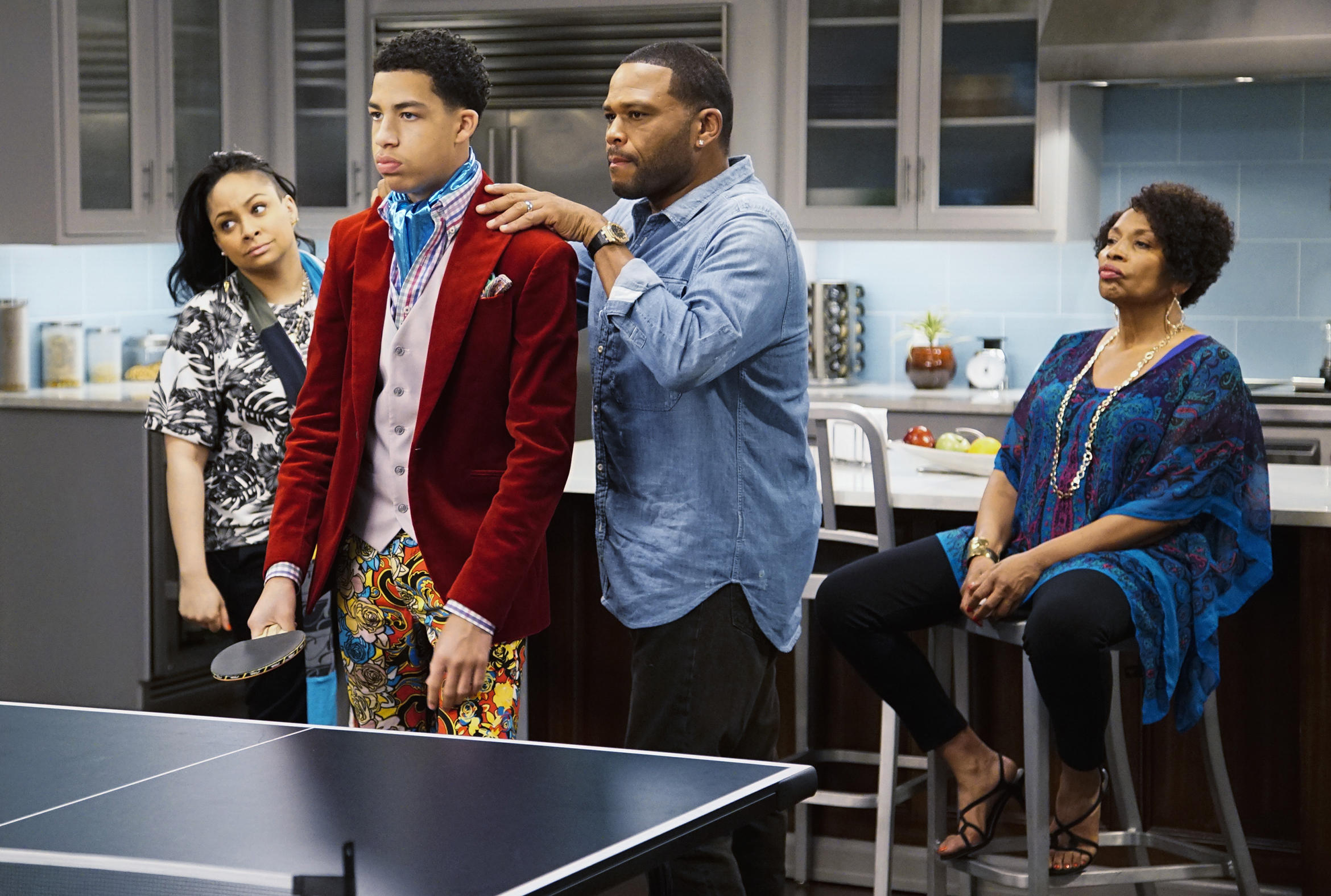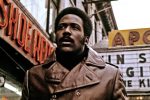When “Black-ish” first aired in 2014, I was reluctant to watch the ABC sit-com. I thought “Here’s another show that’s going to be full of stereotypes and bad humor.” It was only after I heard a few of my friends and my parents talking about how great it was that I gave it a chance.
And I’m glad I did. The show turned out to be one of the only comedies on air today I enjoy with jokes that I can relate to as a black, mixed woman. “Black-ish” has done very well since is began, with high ratings all around and even spawning the spin-off series, “Grown-ish.” But being funny was not the show’s only purpose. “Black-ish” has consistently tackled social issues such as police brutality, the n-word and history constructed under a white narrative.
While comedy does have the ability to offer important commentary on serious topics, I believe there is a difference between what it can offer when compared to more realistic depictions. Capturing the essence of heavy issues through raw, honest portrayals allows the audience to connect to the show as someone who understands what they are enduring.
“Black-ish” is a show that has proved able to accomplish both the comedic discourse and emotional, life-like representations I speak of. It is the last four of episodes of Season 4, however, that serve to really cement “Black-ish” as more than just a comedy.
Toward the end of Season 4, “Black-ish” started a story arc with a very serious topic: marriage and divorce. I could rant for days about the many emotional scenes they contain, but I’ll focus on what I felt were the most important.
Previous episodes had dropped hints that maybe Andre (Anthony Anderson,) and Rainbow’s (Tracee Ellis Ross,) marriage wasn’t as perfect as the audience had imagined, but it wasn’t until Episode 20 where their marriage first became the main focus of an entire episode. Titled “Fifty-Three Percent,” the intro starts with Dre talking about how “53% of American marriages fail.” He then starts talking about how every few years he and Bow get into a “funk.” Dre says it’s “not a big deal unless you can’t get back out.” Thing is, he’s starting to wonder if he and Bow have “less of a shot” of getting out of their current funk then they thought.
The episode shows many examples of the strain in Dre and Bow Johnson’s marriage. It follows the two as they seek out a marriage therapist after the couple got in a heated argument at their young son Devante’s (August and Berlin Gross) birthday party. During the party Dre asked many people about how early their children had started walking because he is concerned that Devante still cannot walk. Bow on the other hand professes that as she “has said a million times,” he is fine. This gives the impression that this argument has been a source of contention for quite awhile. Dre and Bow proceed to argue about other petty issues at that party, such as who’s to blame for the misspelling of Devante’s name on the cake or Bow re-washing the dishes Dre had done. They do realize that everything is not alright, with Dre asking, “What’s going on with us?” and Bow responding “We’re just off.” The two then decide to go back to couple’s therapy.
The rest of the episode follows Bow and Dre as they try to take the therapist’s (Suzy Nakamura) advice and have a “date night.” There are still the typical light-hearted side story-lines about the other characters to provide comedic relief, such as Junior (Marcus Scribner) believing Jack (Miles Brown) can read Devante’s mind. Bow and Dre keep bickering throughout the episode, but at the end they connect when Devante finally walks. While at first it looks like the episode is going to end on a positive note, it all turns sour when Bow admits she was worried about Devante too. Dre gets upset at this, saying to Bow “If you felt like that why didn’t you let me know so I wouldn’t feel like I was going through this by myself?” Bow responds that she didn’t want Dre to go into “crisis mode” and overreact; the couple clearly does not see eye to eye.
The episode ends with Bow saying to Dre, “I am starting to realize that you and I see the world differently,” and him responding “Yeah, well, I think we do too.” Finally, the ending scene closes with Dre shutting the lamp off as he and Bow lay on opposite sides of the bed, sad music playing in the back. The episode leaves the audience fearfully wondering what is going to happen to Dre and Bow’s marriage.
And that’s where the last three episodes of “Black-ish” Season 4 come in. Episode 20 set up a three-episode story arc solely centered around the couple’s marriage. Episode 21, titled “Blue Valentime,” starts off with Dre and Bow getting their kids ready for school. The scene is warm and lively with no indication of any discontent. This all changes when the kids walk out the door. The tint of the scene turns a morose blue color, light fading away and The Pixies’ “Where is My Mind” playing sorrowfully in the background. Bow and Dre move through the house apart, an indication of the disconnect between the two.
An awkward air lingers around the house. Dre says he is going to go into the office, even though it is a Saturday. Bow hesitantly tries to suggest they spend some time together, maybe catch brunch, in an attempt to connect. Dre agrees, but then the doorbell rings. Bow suddenly remembers that the contractor is there to remodel the kitchen, an appointment made “a long time ago,” when their problems were not nearly as bad. Not even three minutes into the episode one can already feel the weight and seriousness of what’s to come. At this moment, “Black-ish” feels at its most raw, an honest depiction of marriage issues rather than a comedic or satirical remark on them.
The scene then cuts to a flashback full of vivid color. Dre and Bow happily look at Devante’s ultrasound as Diane and Jack sit in the kitchen. This is the origin of the kitchen renovation, with Bow suggesting the idea and the whole family behind it as the kitchen is the “heart of the home.” Bow excitedly says that she and Dre should design it together and Dre is fully onboard.
But then it cuts back to the present. Dre and Bow’s faces sadly stare into the distance, remembering a happier time. The contrast between the past and present is so stark my heart ached for the couple. The long faces, reluctant attempts at connection and overwhelming feeling of sadness take the show into a new territory where humor has no place.
The two then try to decide on various parts for the new kitchens. Even a simple discussion about countertops is tense. Dre wants marble but Bow remarks that the stone stains easily. Dre then throws in the jab “Well, then, you’re going to have to stay on top of the dishes for a change.” They move onto sinks, where Bow retaliates by saying why would Dre care about having two sink bowls because he “doesn’t do dishes.” They then change topics again to overall decor, an attempt to ignore the tension.
Dre then attempts to guess Bow’s dream kitchen style. Bow ends up not liking it, with Dre going for Bohemian because that’s what he thinks she likes, but alas, she is not a fan. Next Bow tries to guess for Dre. He doesn’t like her design either. Bow thinks green is his favor color but it is actually purple.
The scene then cuts to another flashback full of joy, warmth and color. Bow and Dre are playing charades with a neighbor couple and are winning. They are laughing and screaming in happiness. The two are so connected here they guess each other’s charade almost instantly to the other couple’s amazement.
The episode then goes back to the present. Dre leaves for the office and the couple professes to finish everything “later” in an effort to avoid the problem.
This portion of the “Black-ish” episode was one of my favorites because it showed how the little things can add up. Something as simple as picking out counters and dishes somehow became an exposé on the disconnect between Bow and Dre. The jabs are simple but hurt all the same. However, none of that compares to the deep sadness I felt when I realized just how much the couple had drifted apart. They did not even know each other’s basic likes and dislikes.
Dre and Bow do briefly connect as they talk in kitchen. When Bow complains about him not ever getting her flowers, Dre goes back to an interaction from over a decade ago when they were dating and Bow was laughing at his gift of a single rose. The connection from the shared memory devolves almost instantly, however, with Bow commenting on how Dre always carries around his anger. It goes downhill from there. They get louder and louder. Bow yells “I have no idea what we’re even fighting about! I literally don’t even know what you want right now!” The argument continues as their voices fades away to almost nothing, more sad music all that remains. The audience is forced to focus on the intensity of the couple’s physical movements and sit with the realization that Dre and Bow’s marriage, the perfect marriage, seems almost completely dead.
The contractors then re-enter the room. As they wheel in crate of torn down cabinets, Dre and Bow spot one with a tiny yellow footprint. Shocked that they forgot the contractor’s presence, they remark on how the footprint was Jack’s when he stepped in yellow paint, a memory they had almost forgotten. Dre then tells Bow to do what she wants in the kitchen as he doesn’t “care anymore.” The camera focuses on Bow’s face that is nearly in tears and the scene ends. I wondered if Dre doesn’t care anymore about his marriage with Bow either.
The rest of the episode continues the pattern of blue-tinted, cold scenes of tense interactions between Bow and Dre paired with flashbacks to happier times of color and life. A montage of fond memories is shown, including Bow telling Dre she is pregnant, their wedding and Devante’s birth.
As the episode comes to a close the scene cuts to the finished kitchen remodel, showing a few months have passed. Bow and Dre are still not connecting and Bow finally says “we can’t keep doing this.” And then she utters the fateful three words that show the beginning of what I feared to be the end: “we need space.” Dre agrees.
The episode ends with the most heart-wrenching scene so far. As “Fix You” by Coldplay plays in the background, Dre is standing in the doorway with packed bags. He asks Bow, “How did we get here?” and she tearfully responds, “I don’t know” as she tries not to dissolve into tears. Dre leaves, and the scene cuts to black.
The next two episodes continue the story arc of Bow and Dre’s marriage. Episode 22, called “Collateral Damage,” delves into how their problems affect their five kids, whose ages range from infant to college student. The couple tell the children what’s going on as they have rented an apartment and will rotate who is home. The children are confused and afraid. The audience hears the internal thoughts of Junior, the loveable, awkward high school senior who is sure his parents will be fine as they always are. Junior thinks to himself, “I need … to be the glue that holds us all together.” Here, “Black-ish” depicts an all too common mindset of children worrying about their parents going through tough times. Too often they believe it is their responsibility to do something, everything, anything, to keep their family together. It is a burden no child should have to carry.
The episode also goes into the internal monologue of Jack, the simple and adorable elementary-school-aged twin. Jack thinks to himself, “When I dance, people get happy … I feel better when I dance, and so does everyone that sees me.” The audience sees Jack dancing “The Stanky Leg” to his upset dad, his crying mom and his class in an effort to make people laugh. However, it gets to the point where he gets sent to the principal’s office for dancing in class after ignoring explicit instructions to stop. Here Jack, by acting out, shows yet another way kids react when their parents’ relationship goes south. He is not reacting maliciously, but simply trying to make the people around him happy as he sees how much pain his parents are in.
Next comes Jack’s twin, Diane (Marsai Martin), the practical one. She rarely shows emotion. In her inner monologue, she says, “Unlike my weak siblings, I was fine.” In yet another example of the ways in which children can react to their parents’ strained marriage, Diane is denial.
Then there is Zoey, the family’s only college-aged child, who’s played by the electric Yara Shahidi, the star of the “Black-ish” spinoff, “Grown-ish.” She remarks to herself, “So I come home from college and Mom and Dad’s marriage is in shambles. So does that mean that when you fight with someone, you love them?” The audience then sees her arguing on her phone with her boyfriend Luca in the same way she has seen her parents argue. Bow witnesses this, later remarking to Dre that she is worried as the two go shopping for a watch to give Junior at his upcoming high school graduation. The couple realizes that all of their children have been affected, and not in a good way.
As they purchase this watch for Junior, the cashier, a woman named Linda (Kj Smith), comments on how Bow and Dre are “her favorite couple.” They are “black love at its finest” and “black excellence.” Here, the “Black-ish” episode broaches the topic of black marriage. There is little representation of strong black marriages in the media. When many black people see solid black marriages there is a hope that comes with it. It lets them know that despite the odds, despite a world against them, they can still have this.
After ordering the watch Bow and Dre vow to give their marriage another go, because they “have something special” and always have. As Dre says they have to do it “for [their] kids, for [themselves] and for Linda.” The two believe themselves to be iconic. They’re “Dre and Bow Johnson” and they aren’t “going down without a fight.”
The episode cuts to the family sitting in the audience of Junior’s high school graduation. Junior is the valedictorian and giving the graduation speech. In it he focuses on their parents and their nudity. He discusses love and commitment, which he says he learned from his parents. The speech is inspirational, discussing the achievements of their family and his parents’ commitment to it. Bow and Dre lovingly hold hands as he finishes. Everyone cheers, and the audience thinks all is now right with the “Black-ish” world.
And then the worst happens, as the “Black-ish” figure heads’ relationship hangs on by a thread. The episode cuts to the celebration dinner which at first seems peaceful. The extended family sits at the table and all seems well. After it ends, Dre comes up to Bow and says, “today’s been really nice.” He asks her to stay the night, even though it’s not her day to be home. But then Bow responds that she can’t because she must be up early for call tomorrow. Dre is indignant, asking her why she never told him she went back to work a few weeks ago. The conversation spirals from there as the whole family watches.
In comes Junior who asks what’s going on as he witnesses his parents ruin his graduation dinner. Voice broken and shaking with emotion, he says, “Stop. Stop lying to me. Stop pretending like everything’s alright when it’s not. God, I’m such an idiot. I believed you guys were gonna be okay. But you were just faking it this whole time. Has this all been a lie? You know what? I’m done being lied too.” He then throws his watch out the door into the grass and storms out of the room.
Zoey asks everyone to calm down, but to no avail. Even Diane breaks down with one of her most intense displays of emotion all season. Tears streaming down her face and voice cracking, she says “Zoey what’s happening? Is this real? Is this really happening” She then runs out of the room, followed by Jack and Zoey.
This scene had me so teary-eyed. Even Junior’s unwavering optimism is broken and one can see the whole family crumble. It illustrates just how intensely the parents’ marriage affects the rest of their family, especially the children. When Bow and Dre go out to look for the watch Dre says, “I think we need more than just space” and Bow responds “I think so too.” It was then I knew it was as I had feared: divorce was coming for the “Black-ish” couple.
The episode ends with the children and long-divorced paternal grandparents (Laurence Fishburne and Jenifer Lewis) gathering in Junior’s room. Junior says “I should’ve done more to help them. I should’ve done more in my speech,” showing yet again how much responsibility he has taken on for his parents’ marriage failing. The grandparents tell them that it is no one’s fault, and no one should blame themselves. As Diane asks, “What now?” grandmother Ruby responds “Whatever happens, we’re never gonna stop being a family.” But I was left wondering: what would that family look like now?
The final episode of “Black-ish” Season 4, Episode 23 titled “Dream Home,” tackles what life is like when Dre and Bow split up. Dre moves into a huge “dream house” with an infinity fire pit and all white decor. While holding a lighter tone than the previous two episodes, this one still works through some tough topics. It shows life apart from both Dre and Bow’s perspective as they try and figure out what a world without the other looks like. At first the kids hate being at Dre’s bachelor pad. With Dre trying to make things normal but failing, Diane asks to go home, Junior calls his mom at dinner and nobody’s happy. Bow also struggles to do things Dre used to take care of, such as take out the trash or deal with a possible intruder in the house.
As the episode goes on, however, the audience sees the everyone adjusting to life with the parents apart. Dre buys kid-friendly furniture and turns his “dream home into a family home” where the audience sees the kids enjoyable eating dinner Dre cooked. Bow does things she “never had to do before,” such as fix the kitchen sink and handle a scary sound in the house with confidence. I started to think maybe a world, or TV show, where Dre and Bow aren’t together might not be so bad.
But then Bow calls Dre in the middle of the night. She’s sobbing; her dad died. Despite their separation, Dre was the one she called in crisis. Dre says to her, “I’m on my way home.” To me this is one of the simplest, yet strongest lines of the whole story arc. Despite what they’ve been through, despite the many months they’ve lived apart, Dre’s home is with Bow, his wife. When he arrives home he takes her in his arms as she cries. In grief, the two are connected once more.
This connection made in grief ends up bringing Dre and Bow back together again. Everything is warm and full of color once more, an indication of happiness regained. The audience sees Dre choose to stay home even after Bow’s father’s funeral, a choice Bow fully supports. The episode ends with the reunited couple back in the couple’s therapist’s office. They talk about how the bad times brought them together. The two realized they wanted to be together through anything. They are “choosing each other” until the end. Dre comments that he doesn’t even really understand how things got so bad in the first place and the therapist offers a powerful analogy in response. She compares life to a Thanksgiving dinner, where marriage is the turkey. “The turkey is the centerpiece and once it’s in the oven it’s good by itself for a while.” So, people focus on the sides: kids, work, house, etc. But then people realize they “haven’t checked on the turkey in a while.” The therapist says the two have been neglecting the most important thing: themselves.
The season and episode end with Dre and Bow embracing, saying “I love you” to one another. Despite all the two went through, they found their way back to each other. I can truly say the story arc of Dre and Bow’s marriage is the most powerful and accurate depiction of marriage I have ever seen on TV. In my opinion, the show transcended what is understood as a sit-com by grappling with the topic head on, making sure to capture multiple perspectives along the way.
“Black-ish” is more than just a comedy; it’s a place for people to find solace in its understanding of their struggles.
















